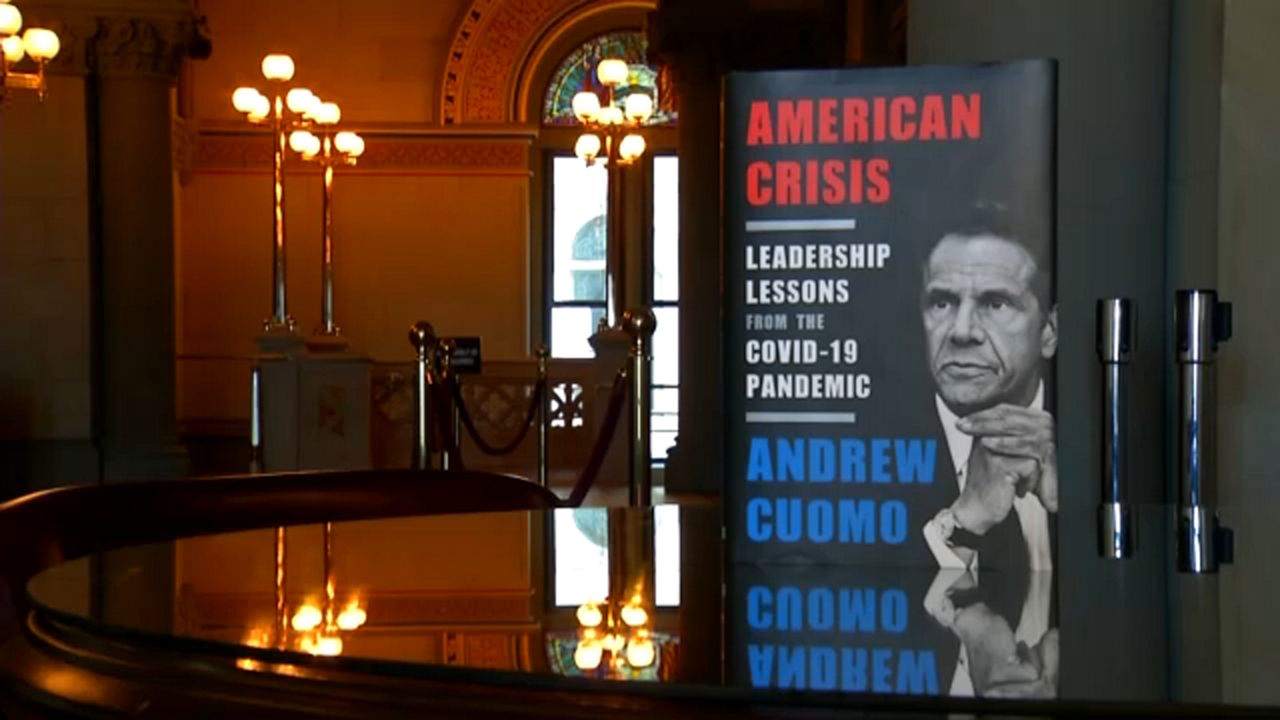Former New York Gov. Andrew Cuomo's office "overpowered" staff at the state's primary ethics watchdog to win approval of a multimillion-dollar book deal for the then-governor, according to a report released Thursday by the Joint Commission on Public Ethics.
The report provides a window into the approval process by the commission's staff for Cuomo's memoir about the pandemic, which became the focus of several investigations that carried over after he left office, and the strong-armed tactics that were alleged to have been used.
A spokesman for the former governor asserted in a statement once again no wrongdoing was committed.
The report found, however, the commission, known commonly as JCOPE, was pushed aggressively by Cuomo's office in winning sign off for the lucrative deal. Ethics watchdogs, meanwhile, failed to recognize the potential "moral quandary" created by the approval and failed to serve as an effective watchdog, the report found.
"Rather than JCOPE telling the Executive Chamber what information it needed to provide in order to obtain approval, the Executive Chamber told JCOPE what information the Governor would provide, which was not much," the report found. "The Executive Chamber also successfully coerced JCOPE into expediting the approval and rushing through the process with very minimal due diligence."
At the same time, the report included a set of recommendations for the commission's successor entity, which good-government advocates in Albany hope will be more independent from elected officials.
New York ethics regulators on Thursday afternoon voted to release the report that details the circumstances of how its staff approved the deal for Cuomo.
The 10-1 vote by the commission in an impromptu meeting is expected to be one of its final acts of existence after lawmakers and Gov. Kathy Hochul this year voted to create a new commission to oversee lobbying and ethics in New York government.
The sole vote against releasing the report was by Commissioner William Fisher, the remaining Cuomo appointee on the panel.
The commission's staff had previously approved Cuomo's $5.1 million book contract with publisher Penguin Random House. Ethics commissioners later would rescind approval of the book deal in 2021 and seek to claw the money back, a move that Cuomo through his legal team has resisted.
The former governor in April filed a lawsuit to block the effort by the commission to recoup the money.
The report was written by the outside law firm Hogan Lovells.
The 2020 book, American Crisis: Leadership Lessons from the COVID-19 Pandemic had come under scrutiny by state lawmakers and ethics regulators soon after its release. A report released by the Democratic-led Assembly impeachment inquiry in 2021 determined Cuomo used government resources to help him write the book.
Attorney General Letitia James' office has also opened an investigation into the circumstances surrounding the book deal.
Cuomo has denied any wrongdoing. Cuomo resigned last August amid allegations of sexual harassment and inappropriate conduct.
“As we said all along, on advice of counsel all staff who volunteered on the book worked on their own time — and as finally acknowledged today, we provided any and all information that JCOPE required for approval," said Rich Azzopardi, a spokesman for Cuomo. "There is some poetry to the fact that this feeble stunt - authored by the very law firm that is representing JJOKE in our lawsuit - is the last act from this incompetent biased, score settling dinosaur of a bureaucracy.”
The commission is set to be replaced by a new ethics and lobbying watchdog following a decade of controversy for the Joint Commission on Public Ethics.
The panel had come under scrutiny for its lack of transparency and accusations of being too cozy with the elected officials who provide the appointments to the commission.
The report concludes with a series of 10 recommendations for the new watchdog agency which include adopting "specific guidelines and procedures concerning recusal when employees of the agency believe they are potentially conflicted."
The new entity will still be appointed by state lawmakers and the governor, but a group of law school deans in New York will be tasked with conducting extensive background checks on the nominees.



